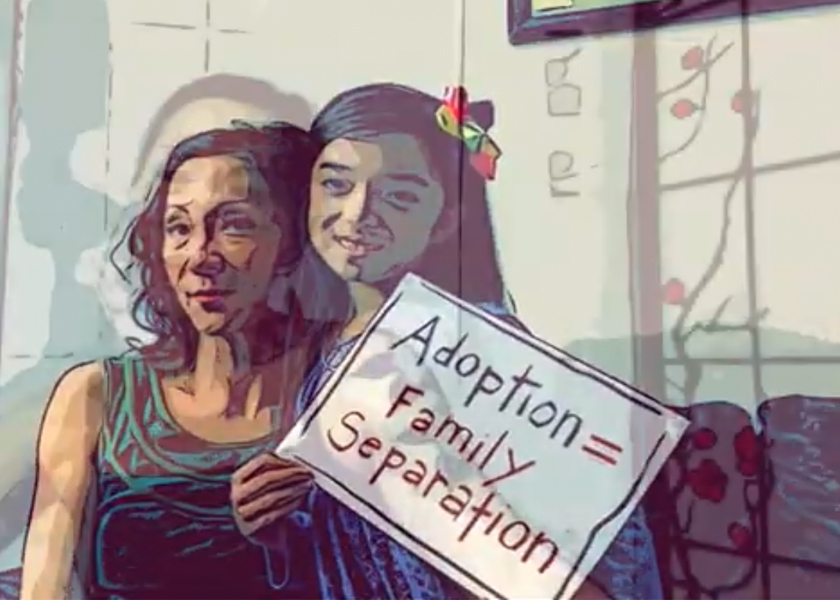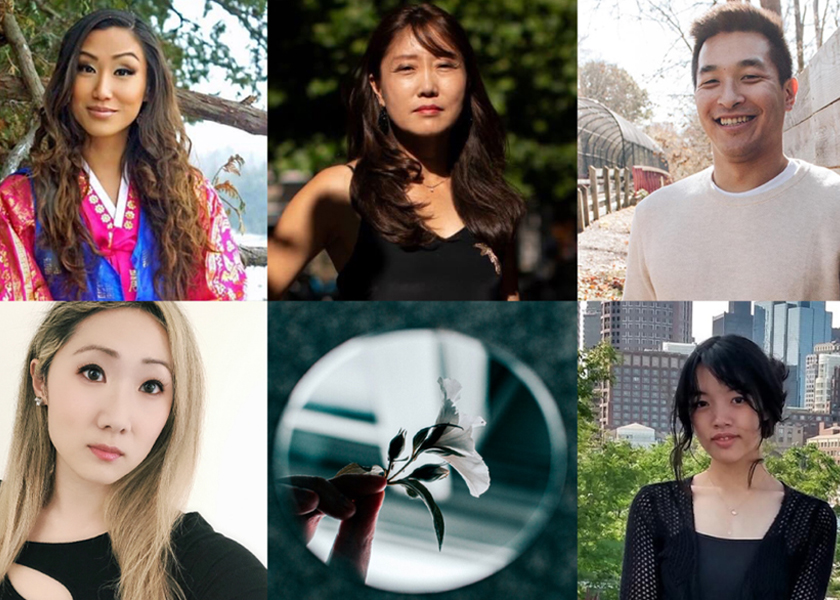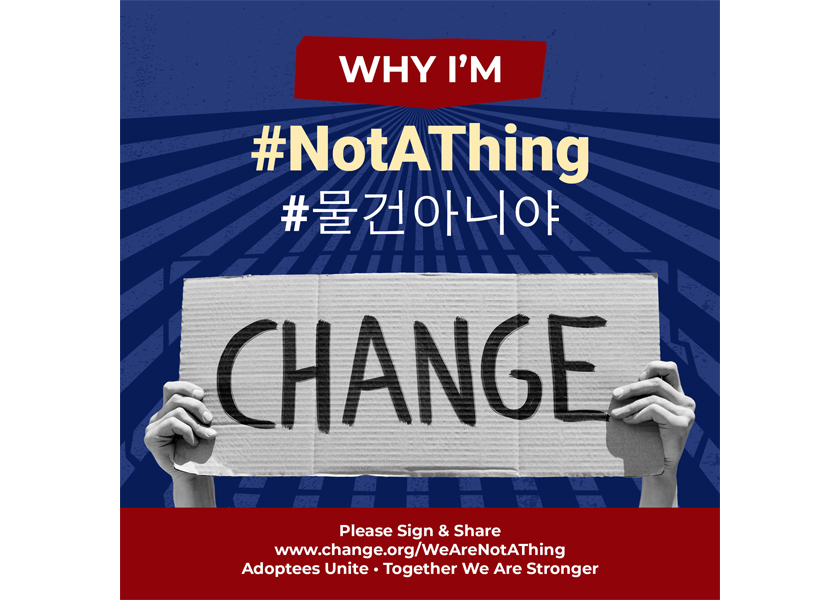The message and methods of musician, poet and activist Mila Konomos | By Bill Drucker (Spring 2021 issue)
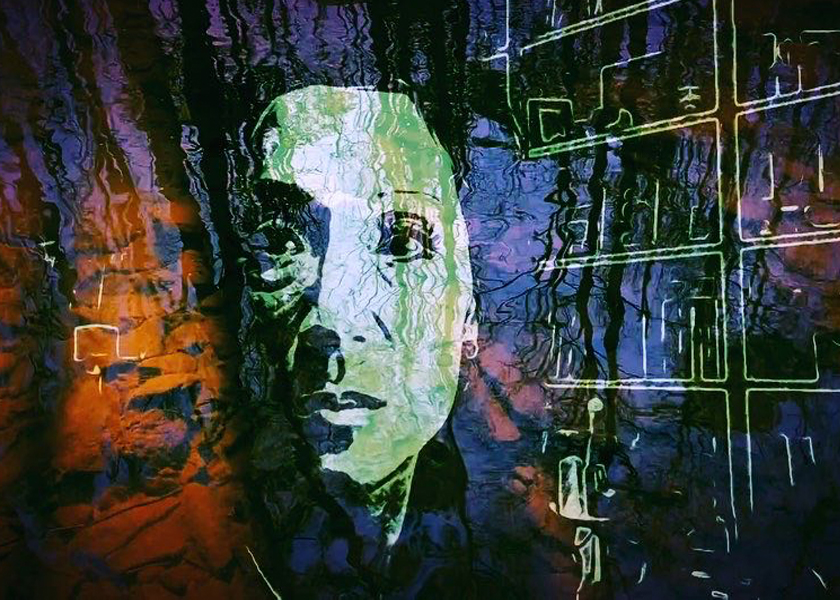
The editor of KQ asked if I would do a review on poet and performer Mila Konomos. “Ok, sure” was my answer, but in my head, “who?” You think you’re well versed and caught up on the contemporary topics in the news, media, and literature. Korean adoptee friends first mentioned to me the new Korean American movie, Minari. My younger daughter had to tell me who was Louise Gluck, aside from being the 2020 Nobel Winner for Literature. Sigh. I googled Mila Konomos, and what a surprise.
Korean adoptee performer, poet, and activist Mila Konomos was born 44 years ago in Korea as Mi Ra Cha. She was separated from her birth family and adopted by an American military family. Her new family moved from station to station, and she lived in places such as Japan and the Philippines. She did later reconnect with her biological parents. These days, she is married and raising two children.
A common trauma among adoptees is abandonment, a missing sense of wholeness, of belonging, and of struggling with identity and citizenship. Like other Korean adoptees, Konomos has been dealing with this personal demon for a long time. In her journey of discovery, this searcher has bloomed into a performance artist, social and racial justice activist, poet and author.
Her writings are in several anthologies: Flip the Script: Adult Adoptee Anthology; Lost Daughters: Writing From a Place of Empowerment and Peace; Adoption Reunion in the Social Media; and Adoption Therapy: Perspective from Clients and Clinicians on Processing and Healing Post-Adoption Issues. She has published about 50 essays on the intersection of identity, transracial adoption, and race.
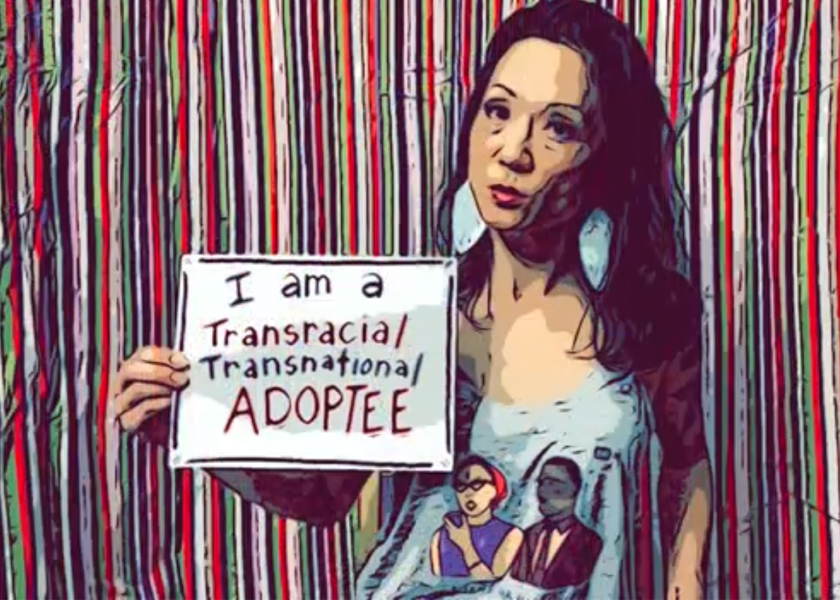
Konomos’ performance works deal with themes of emotional trauma and recovery. While she draws much from her own life growing up adopted, for the audience her personal themes of identity and belonging transcend to the wider spectrum of gender, racial, and social issues.
Her music video Han~Mother~Kind is a 13-minute visual performance of an adoptee’s journey of loss, grief and longing. This video is a combination of several tracks from her album Shrine. The long video, accessible on YouTube, uses Western-style rhythms, Asian images, and elements of the Korean folk singing style pansori. The production values are very good with beautiful visuals, repetitive lyrics and driving rhythms.
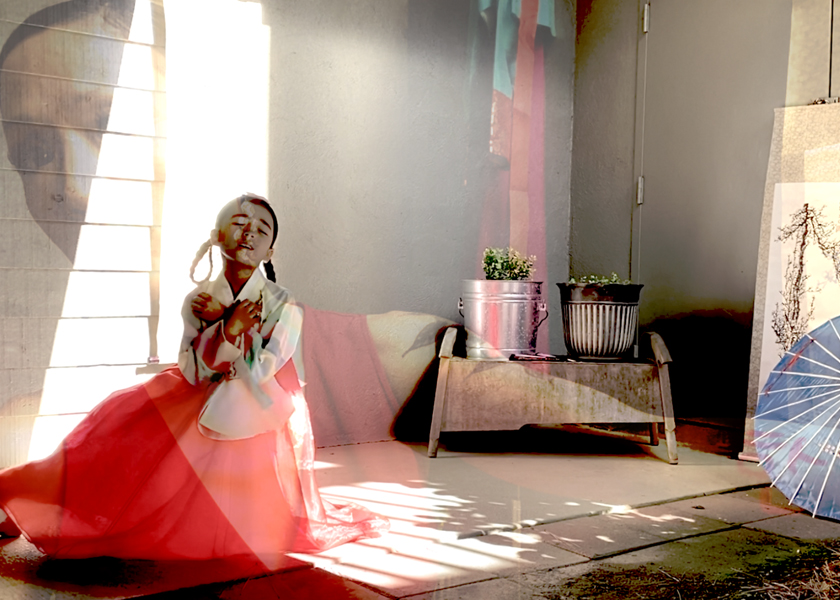
The Shrine, in which she uses the pseudonym Empress Han, is a digital album, available on Bandcamp and Spotify, and includes 21 tracks and a bonus. The tracks are: Han, Slanted, Loyal, Pledge, War, Blood, Love, Mermaid, Don’t, Kind, Once, Mother, Paradise, Alien, Dust, Unchosen, Eyes, Hold, Remain, and Somewhere. Some of the titles have strong adoptee and Korean references, such as Han, Slanted, Blood. Other descriptors, such as Blood, Love, Mother, Hold suggest family bonds. Alien, Dust, Unchosen suggest isolation or separation.
Konomos’ music uses both Western and Eastern elements. The sounds are rich and full, starting off with the first long track Han uses strong bass riffs and percussions. Other songs depend on the piano and electric keyboards. The musical arrangement and experimentation are quite good. However, while the vocal reproduction of her voice is articulate and emotional, it needs to rise above the instrumentals with more clarity. As is, her intelligent lyrics are overwhelmed by the music.
Konomos has certainly been busy. She produced several single musical videos addressing anti-Asian hate, including You Think It’s Us. In this video, Konomos is showcased in all her personae of performer, writer, and social activist. The repetitive lines incorporated into the video, are strong, in defiance to the hate, in protest of the hostility.
You think its us
You throw your hate at us
You think its us
You point your hate at us
You think its us
You throw your hate at us
You can’t touch us
You can’t kill us
You can’t kill us
You won’t kill us
You won’t kill us
You can’t erase us with your wars and words
We’re here to stay
Our stories
Our glories
Generations before us
We’re here to stay
Another music video, Not a Thing speaks volumes about objectification.
I am not a thing
For you to purchase
Then bring to your home
To display
Then cast out
And throw away
I am not a trophy for you to parade
I am not merchandise for you to trade
I am not a thing
I am not a thing
I am a human being

Currently, Konomos is based in Atlanta, Georgia, where she is associated with the Radical Art Community, and the non-profit organization Adoptees For Justice. Atlanta is the center of dynamic political and social activities right now, in the larger society and more lately for the Korean American community. The issues that the artist so articulately describes have never been more divisive or polarized. Konomos could not have chosen a better place to express her causes.
In May 2021, this multi-talented artist/activist performed her latest musical poetry album, Shrine by Empress Han. Konomos has a descriptive page on Facebook, and her music is available on YouTube.
Writer’s note: Mila Konomos maintains a website at https://theempresshan.wixsite.com/empresshan. She has been active with Adoptees for Justice, which is pushing for legislation to make citizenship universal for all transnational adoptees: adopteesforjustice.org. She is also on Twitter at @the_empress_han and on Facebook and Instagram. Her new album Pyre will be released in November (Adoption Awareness Month).
